[Updated Oct 2020] A guide to serviced offices and office space for rent in Berlin as well as general information that may be useful if you are thinking of renting office space in the city.
For further offices information or to search for offices for rent in Berlin just click. Or contact us for any other query.
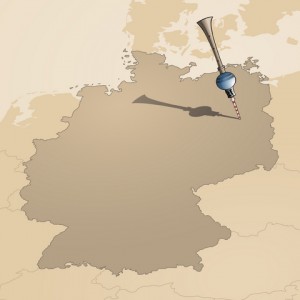
Berlin
Berlin has been at the heart of German affairs since the country was unified a hundred and fifty years ago and is now one of the leading lights of the European Union as it pursues ever greater integration on a continental scale. Having first been populated around 800 years ago, the city was ruled by the Hohenzollern family from around 1440 all the way through to the early 20th century.
The city lies in the north-east of Germany and is surrounded but not officially incorporated by the State of Brandenberg, which was an important part of the Holy Roman Empire that dominated central Europe for most of the last millennia. Berlin was first ruled by electors of the Holy Roman Empire, then by Prussian kings and eventually by German emperors, all of whom were descended from the same lineage.
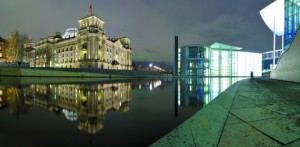
War and enlightenment
Like most of the plains that make up much of modern Germany, the areas surrounding Berlin and the city itself were caught up in and largely destroyed by the Thirty Years War. The conflict began as a battle between the Catholics of the Holy Roman Empire and the religious rebels who became known as Protestants and were inspired by the German priest and theologian Martin Luther. Before long the war became a scramble for influence and territory involving virtually every would-be power broker across the continent.
By the beginning of the 18th century, Berlin was the capital of the Prussian Kingdom. Relative spiritual and cultural freedom allowed it to become a great centre of ‘the Enlightenment’, which went on to be one of the most important and influential philosophical movements in European and world history.
Growth, destruction and separation
From early in the 19th century, Berlin became increasingly industrialised and its population boomed until it was undoubtedly the centre of the regional economy. Before the century was over, it had become the official capital of the recently unified German Empire and one of the most powerful and important cities in Europe. It was to play a famously pivotal role in the two great conflicts during the first half of the 20th century, which ultimately resulted in its being largely destroyed and split into East and West Berlin, areas primarily influenced thereafter by ‘the West’ and by Soviet Russia respectively.
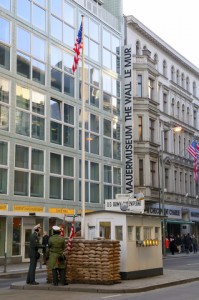
Unification and modern Germany
After decades living along the primary dividing line of the Cold War between the USSR and the USA, the people of Berlin and the city itself was eventually reunified in the late 1980s. Within a matter of months, the Soviet Union was disbanded and consigned to the history books. A long divided country set about rebuilding itself as a unified nation, with Berlin and Berliners at the very heart of that process.
Economy and architecture
The economy of Berlin is based in large part on the success and strength of its service sector, which accounts for the bulk of employment across the city. Many of Germany’s largest companies are headquartered in the capital and dozens of major European businesses operate from the city’s central areas. Among the industry sectors seeing worthwhile growth in recent years are media, life sciences and communication technology, as well as advertising, music production and renewable energy.
Architecture in Berlin draws on a remarkably diverse range of influences and gives the city a unique character and an appeal of its own. The scale of Allied bombing during the Second World War left much of the city destroyed so there areas of the city that are almost entirely modern in terms of its architecture, while some of the most iconic landmarks have either been rebuild or re-imagined along the lines of their former glory. Some of the most striking modern buildings in Germany are to be found in the Potsdamer Platz, an important economic hub and home to some of the country’s leading companies.
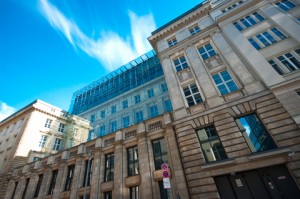
Office space to rent in Berlin
There are thousands of square feet of office space available for rent in Berlin and its surrounding areas, with commercial property in the city among the best and most sought after in Europe. The city has a strong reputation as a knowledge centre and for having a highly-skilled workforce, which has gone some way to maintaining office occupation levels during the economic downturn of recent years.
Office space vacancy rates have been rising in Berlin since late 2008 but at a much slower rate than many of the more export-oriented cities across Germany and the rest of Europe. According to CB Richard Ellis, the up-take of office space in Berlin was roughly equivalent in 2010 as against 2009 and office space vacancy is reported to have risen only slightly in the city since the collapse of Lehman Brothers. Indeed, CBRE suggested after the third quarter of 2010 that “the impact of the economic crisis on office space vacancy in Berlin has been marginal over the last two years”.
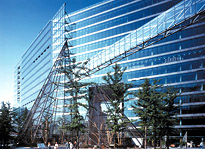
Tourism, entertainment and transport
Tourism has become a significant contributor to Berlin’s economy in recent years and the city is now regarded as one of the most exciting places to visit in Europe. Some of the continent’s best museums and sites of historical interest are found in various parts of the city and it has established a reputation for high-energy nightlife and large-scale cultural extravaganzas, often based around an impressively vibrant music scene.
Berlin boasts one of the ‘greenest’ transport systems of any major city in the world, with almost as many bicycles as people and millions of Berliners getting around on two wheels via designated lanes along major roads. Cars are accommodated as well of course and there are several Autobahns linking the capital with Brandenberg and the rest of the country.
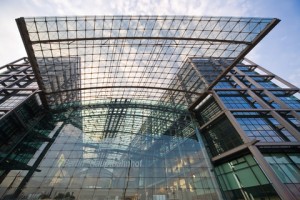
Rail lines also link Berlin with the rest of Germany and much of northern Europe, as well as the two major airports in the vicinity, namely Tegel International Airport and Schonefeld International Airport. Between them, the two airports linked with Berlin accommodate millions of passengers each year and serve as one of Europe’s primary air transport hubs.
Sport
Berlin has hosted more global sporting events than almost any other city in the world, with a history in this context stretching back to the now infamous but nonetheless impressive 1936 Summer Olympics. More recently the city played a huge part in the 2006 Fifa World Cup, hosting the final between Italy and France. In 2009, the IAAF World Championships of athletics were hosted in the city.

Domestic sport is dominated by the football season, with Hertha Berlin having one of the proudest traditions in the sport, having been founded back in 1892 but no longer mixing it with Germany’s best teams having been relegated from the Bundesliga. Other much-loved spectator sports going on across the city include basketball, ice hockey, handball and volleyball.
Our office space search, advisory and acquisition services are FREE, always. Our Berlin office space brokers and agents are globally regulated by the Royal Institution of Chartered Surveyors (RICS) ensuring the highest standards of commercial property advice and service at all times.
